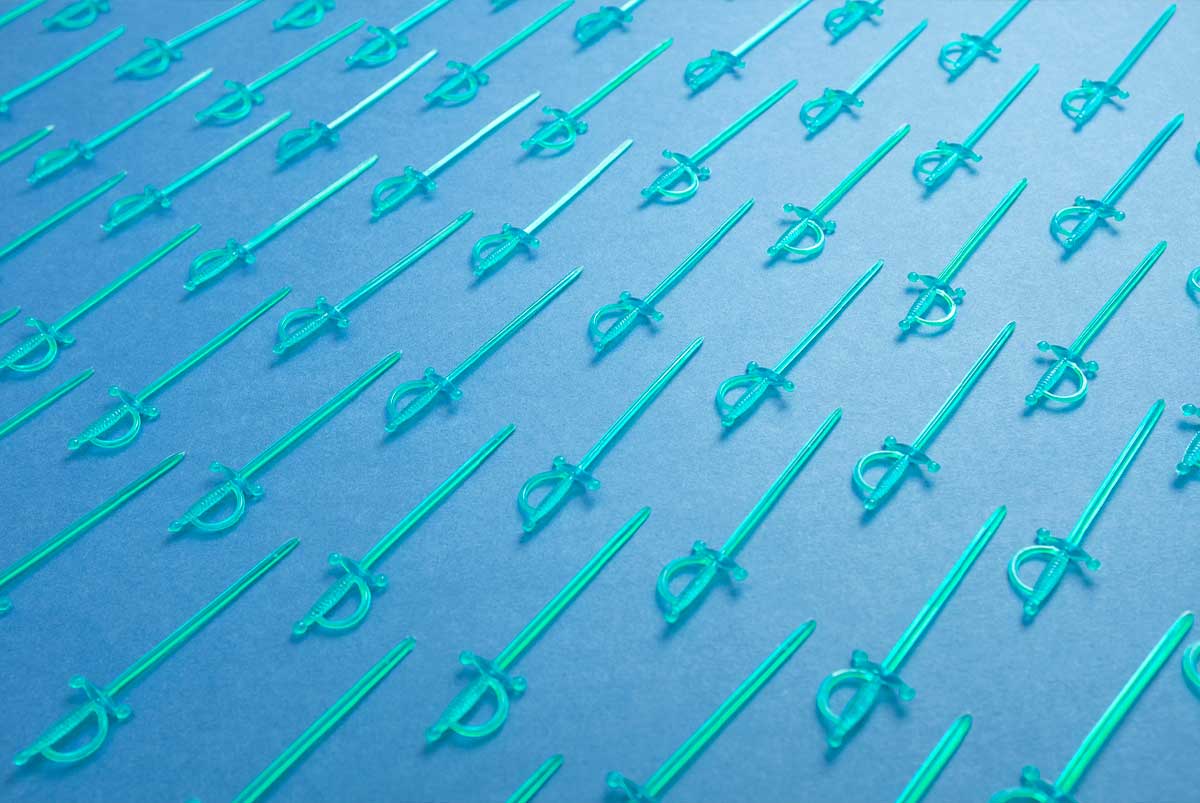Ready To Buy a Home?
Get Approved to Buy a Home
Rocket Mortgage® lets you get to house hunting sooner.
A home offers safety and stability for your family and is probably one of the most important investments you’ll ever make. However, premature death or major disability could leave your family at risk.
If you’re the primary income earner, your unexpected death could leave your family struggling to come up with mortgage payments. While no one wants to think about a worst case scenario, planning for the future can help ensure that your family will always have a roof over their heads.
Mortgage protection insurance (MPI) covers all or some of your outstanding mortgage balance when you die. A mortgage protection policy can mean your family won’t have to worry about keeping up with payments or losing their home.
Keep reading to find out how mortgage protection works and whether it’s a good idea for you.
What Is Mortgage Protection Insurance?
MPI is a type of life insurance that pays off your mortgage if you die before you can pay it off. You might also hear other terms used to refer to this type of insurance, such as mortgage life insurance, mortgage protection life insurance or an MPI policy.
Unlike some other life insurance policies, MPI doesn’t usually require a physical and is often available regardless of your medical history. If you die while the policy is active, the insurance company pays the policy amount to the mortgage lender.
Depending on the policy, the amount may cover the entire outstanding mortgage balance or a portion of it.
How Does Mortgage Protection Insurance Work?
MPI is similar to other term life insurance policies in many ways. You apply for a policy and, if approved, make premium payments to the insurance company.
An MPI policy is attached to a specific policyholder and mortgage. And to take out a policy, many insurers require you to apply within a certain time after closing on your home.
The term of a mortgage life insurance policy covers the remaining years of a mortgage. And the potential insurance payout decreases as the balance of the mortgage decreases.
What happens to a mortgage when someone dies?
Lenders won’t automatically forgive a mortgage because a homeowner has died. If the mortgage (which remains with the property) is a joint mortgage, the surviving co-owner(s) must keep making the mortgage payments.
If no one else’s name is on the mortgage, the mortgage may need to be paid off within a certain time frame after the homeowner dies. Sometimes lenders allow the homeowner’s heirs to assume the mortgage, but the heirs must agree to either continue making the mortgage payments or sell the home to cover the balance of the mortgage debt.
Failure to pay the mortgage can lead to a forced property sale or foreclosure.
MPI acts as a backstop. By paying off the mortgage, your family or heirs can hold on to the home without having to worry about paying off the mortgage.
What does MPI cover?
MPI will pay all or part of the mortgage if the policyholder dies during the insurance term. And some mortgage protection policies also cover mortgage payments if the policyholder becomes disabled due to illness or injury and can no longer work.
Remember, the payout on an MPI policy decreases over time. The original coverage amount may not cover the total amount owed on your mortgage.
MPI doesn’t cover other debts connected to a home, such as home equity loans, home equity lines of credit (HELOCs) or other loan types where your home may act as collateral. It also won’t cover home-related expenses, like utility bills, home repair bills or other standard expenses.
Who benefits from MPI?
While other types of term life insurance let the policyholder name specific beneficiaries, only the family member who inherits your home will benefit from mortgage life insurance.
Some MPI policies also offer additional benefits, such as a small cash payout in the form of a return of premiums. These benefits are usually added as riders, which can increase your monthly premium.
How long does MPI last?
Policyholders sign up for a coverage term that usually matches how many years they will take to pay their mortgage. It could be 15, 20 or 30 years.
MPI is intended to pay off the mortgage, which means once the term is up or the mortgage is paid off, the MPI coverage ends.
How much does MPI cost?
The cost of mortgage protection insurance depends on the following factors:
- Mortgage balance: How much you still owe when you take out the policy. The more you owe when you start, the more the policy will cost.
- Mortgage term: The amount of time before a mortgage is paid off. Depending on the insurer, you may pay less for a shorter mortgage term because the insurer presumes there’s less time for something to happen to you before you pay off your mortgage.
- Health of the insured: While a physical may not be required, the insurer may ask about your age, whether you’re a smoker and other health-related questions to get a sense of whether you’re a good risk. The better your overall health, the less you’re likely to pay.
- Who’s included in the policy: If you and your spouse are both named on the mortgage, the policy may indicate whether the policy becomes active after your death or both of your deaths.
- Inclusion of riders: Every policy has its limits and restrictions, usually referred to as riders. These may be determined by the insurer and limit when a policy will pay out and how much will be covered. When more riders are attached to a policy, your coverage is limited, but your cost is lower.
So, how much does a mortgage protection plan cost? Policies can vary depending on all of the above factors but tend to start between $15 – $100 a month.
Veterans can quickly get a quote and apply for MPI through the Department of Veterans Affairs and may be able to get lower rates. For example, a 35-year-old veteran with 15 years left of their mortgage may get a $300,000 policy for around $27 a month.
What’s the Difference Between MPI and Life Insurance?
MPI and other term life insurance policies have some similarities. Both offer coverage for a set number of years (the term), and both provide coverage to loved ones if you die. Both may also provide the option of early coverage if you’re diagnosed with a terminal illness or major disability.
But there are key differences you should know about if you’re deciding which type of policy to buy:
- Only covers your mortgage: General life insurance policies usually offer a cash payout that allows beneficiaries to decide how to spend the money. MPI only covers up to the amount owed on your mortgage and the money goes directly to the lender.
- Decreases over time: The value of a standard term life policy usually doesn’t decrease over the policy’s term and may even be subject to regulations that prevent any decrease in the value of a policy. MPI goes down over time in sync with the decrease in your mortgage balance.
- Can’t name your beneficiaries: Most life insurance policies allow you to name one or more beneficiaries, including your spouse, heirs or other parties. With MPI, the policy is paid to your mortgage lender, leaving the benefit only to the person entitled to your home after your death.
- Medical history is less important: Standard life insurance policies may require a medical exam or a detailed medical history and your level and coverage and premiums may be based on your health. Most homeowners can get MPI without a physical or providing medical records, making it an appealing life insurance option for those with health problems.
Where Can You Purchase Mortgage Protection Insurance?
Fewer insurance companies have been offering mortgage life insurance policies in recent years. This may be due to more customers choosing other life insurance products. The fact that many homeowners stay in their homes for less than 30 years[1] has made MPI a less popular product.
However, you can still apply for MPI from some insurance companies, including many of the major carriers. If you’re interested in MPI, you may want to talk to your home insurance provider to see if they offer a policy bundle.
Be aware that many insurance companies only offer a small window to buy an MPI policy. For example, you may need to purchase a policy within a year of closing on a new home.
What’s the Difference Between MPI, PMI and MIP?
Insurance can sometimes feel like an alphabet soup of acronyms, and it’s easy to confuse MPI with private mortgage insurance (PMI) and mortgage insurance premiums (MIPs). It doesn’t help that all three acronyms contain the words “mortgage” and “insurance.” The difference between all three rests in the “P” and the order of the letters.
- PMI: Private mortgage insurance protects your lender if you don’t pay your mortgage. Borrowers are often required to pay PMI if their down payment is less than 20% of a property’s purchase price. PMI doesn’t offer a payout or protect homeowners. But it can help borrowers purchase a home without having to make a 20% down payment.
- MIP: When you take out a loan backed by the Federal Housing Administration (FHA), you pay mortgage insurance premiums. FHA loans can be a great option if you have debt or credit issues or can’t afford a larger down payment. Because the federal government promises to cover your mortgage lender in case you default on your loan, you pay a fee to help insure the loan.
Although the beneficiary of an MPI policy is the mortgage lender, the policy also benefits anyone who would have been responsible for paying your mortgage after your death. Because after the policy pays out, the balance of the mortgage payment would be paid, if not in full, then at least enough to provide some breathing room.
PMI and MIP only protect the lender. Unlike MPI, they don’t provide money to cover the balance of your mortgage and let your loved ones keep the house after you die.
What Should You Consider Before Getting Mortgage Protection Insurance?
While mortgage protection insurance can offer peace of mind, it may not be the right insurance for every family. Other options such as a regular term life policy may provide better protection for the cost. Carefully consider your situation, along with the pros and cons of MPI, before deciding how to proceed.
PROS of Mortgage Protection Insurance👍
CONS of Mortgage Protection Insurance 👎
Is Mortgage Protection Insurance Worth It?
You might consider mortgage insurance to protect your family in the case of your death. MPI can be a straightforward way to help ensure your family stays in their home, and it can be an appealing option for homeowners with complicated medical histories.
However, these policies aren’t widely available and can include higher premiums than other term life policies. MPI can offer peace of mind, but it’s important to make sure you understand what you’re getting.
Get approved to buy a home.
Rocket Mortgage® lets you get to house hunting sooner.
The Short Version
- Mortgage protection insurance (MPI) covers all or some of your outstanding mortgage balance when you die
- Most homeowners can get MPI without a physical or providing medical records, making it an appealing life insurance option for those with health problems
- MPI isn’t private mortgage insurance (PMI). MPI is life insurance. PMI protects a lender in case a loan goes into default
National Association of REALTORS®. “How long do homeowners stay in their homes?” Retrieved May 2022 from https://www.nar.realtor/blogs/economists-outlook/how-long-do-homeowners-stay-in-their-homes




